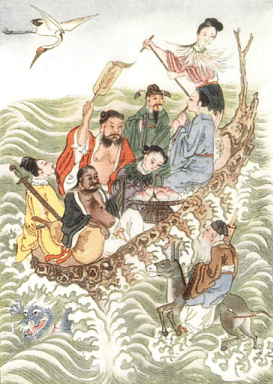
The Eight Immortals
Rambo and Batman say as much about American culture as JFK and Michael Jordan. A country's fictional heroes grant insights into its collective subconscious. We've told you about China's Olympians and earthquake survivors. Let's take a look at a few Chinese heroes of book, film and comic, to affirm that we might have different values, but a shared desire to be larger than life.
The Eight Immortals
If you've eyed any significant amount of Chinese vases or scrolls, you've seen them - all together or in groups of three. Promulgated in the Song Dynasty but icons of Daoist legend, they represent the Chinese ideal of undying happiness and harmony.
Zhang Guolao is venerable old man who rides a donkey backwards, a donkey he can fold up like paper and store in a wallet. Zhong Liquan brandishes a fan, a peach, and a big naked gut. Han Xiangzi can make flowers bloom and tame savage beasts with his flute playing. He Xiangu wields a magical Lotus flower, while her female companion Lan Caihe gads about in a tattered dress. Li Tieguai is a great spirit who has chosen to inhabit the body of a lame beggar. Lu Dongbin is a more recognizable brand of hero, a sword-carrying dragon and demon slayer. Cao Guojiu is the dandy, sporting fine court robes and a pair of castanets.
The fact that such a diverse group not only gets along but depends on each other in times of adventure and romantic turmoil reveals the Chinese concept of accepting society's imperfections, and the desire to have them balance out to everyone's greater good.
The Monkey King and Bajie the Pig
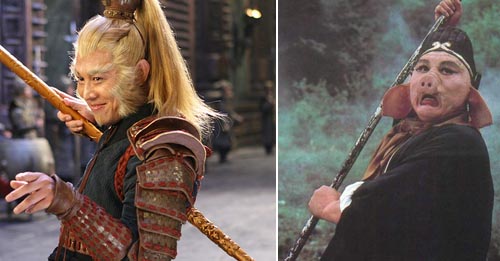
They are both subservient to the holy Buddhist monk from Journey to the West, but much more admired. Whereas the monk embodies an unattainable ascetic ideal, the Monkey King is a paragon of the cardinal Chinese virtue, cleverness. Imbued with martial prowess, he is nonetheless a prankster, taking more pride in outwitting than outfighting. Altogether, he is a superhero far more subtle and nuanced than any cowboy or knight.
Not that all Chinese heroes have to be quick-witted, or even virtuous. Bajie the Pig, another of the monk's protectors, was an admiral in the Celestial Navy, and made bold enough to flirt with the Moon Goddess at a heavenly soiree. Incensed the Jade Empress banished him to earth and sentenced him to a porcine incarnation. He accompanies the monk in hopes of accumulating enough karma to make it back to heaven. Nonetheless, his insatiable lust for wine, women and buffets keeps him earthbound. For all his laziness and thickness, Bajie is a force of nature in a fight, splitting mountains and crushing ogres with nothing more than a garden rake.
Judge Dee
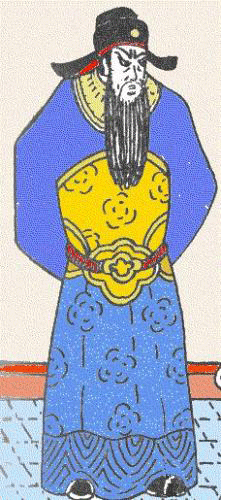
Charlie Chan nothing. This Chinese detective hero was conceived in the eighteenth century, but inhabited the seventh century Tang world, a magistrate of protean skill. A broad education lends to his unparalleled deductive abilities. He is girt with the fabled Rain Dragon sword, but is just as home bludgeoning with sticks.
His tales depart radically form the Holmesian model in that personal, familial, and professional bonds draw him into continuous intrigues and quests for revenge. Frequent paranormal encounters also distinguish him from the traditional western detective mold. Otherwise, Judge Dee stories smack distinctly of the gritty cops and robber drama dominating prime time TV these many years. Ironically, he was popularized in Tokyo after WWII by sinologist Robert van Gulik, who adapted the 1750 book.
The Iron Monkey
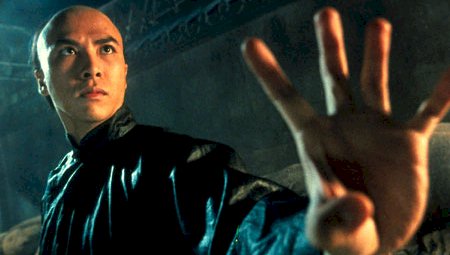
Chinese superheroes? Where's the kung fu? Dr. Yang, aka the Iron Monkey, is a consummate fictional martial artist, from roof-leaping to death-touching. However, he is also a dedicated doctor, more given to healing and concocting herbal medicines than busting heads. But corrupt officials just won't leave him to his practice. Despicable Manchu heavies bleed an already drought stricken town. Donning his mask, the doctor transforms into the Iron Monkey, a robin hood who swipes from the haves and gives the loot to have-nots.
Goons with the temerity to interfere in his righteous pilfering are lucky to get off with a shadowless butt-kicking, but end up on the wrong end of a chain whip when they persist. Governor Cheng is The Iron Monkey's Prince John, Master Fox his bumbling sheriff. Aside from plotline though, it is Wong Fei Hung, not the man in green, on whom the Iron Monkey is most closely based.
Huo Yuanjia
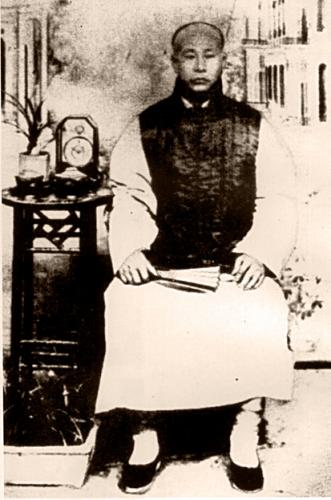
This is the kung fu hero even the nonpareil Bruce Lee looked up to. And while he was flesh and blood, his real-life exploits and the myths they spawned consecrate his fictional superhero status, like a Chinese Daniel Boone.
Huo Yuanjia's early life followed the familiar pattern of the sickly shrimp studying martial arts for self-esteem. Fearing for his son's life, Huo's father forbade him to fight, until he was goaded into confronting and pulverizing a local tough guy disrespecting the family kung fu school.
Huo's story is instructive in that he assumed the role of China's protector during the country's most humiliating days. At the dawn of the twentieth century, a Russian wrestler arrived in Tianjin and began openly mocking the Chinese, backing his "sick men" insults with open challenges that none dared answer. Huo's request for a fight ended in the Russian's forfeiture, and Huo's glory. Another interloper, Hercules O'Brien, a British boxer, was granted a Queensbury-style bout with Huo, but left town rather than engage.
Instead of resting on his laurels, Hou co-founded the Qin Wu Athletic Association, a school dedicated to teaching Wushu to as many Han Chinese as possible, martial arts having been banned long before by the fearful Qing government. Pride and patriotism were instilled aong with kung fu skills, and the school turned out many heroes under Huo's tutelage. The intrigues of inter-school rivalry led to his death. After his top student Liu Zhengsheng won a controversial match with a Japanese judo practitioner, a post-contest brawl led to lasting enmity. He died in 1910, only 42, a victim of arsenic poisoning. If the story sounds familiar, then you've probably seen Fearless.
Warning’╝ÜThe use of any news and articles published on eChinacities.com without written permission from eChinacities.com constitutes copyright infringement, and legal action can be taken.
All comments are subject to moderation by eChinacities.com staff. Because we wish to encourage healthy and productive dialogue we ask that all comments remain polite, free of profanity or name calling, and relevant to the original post and subsequent discussion. Comments will not be deleted because of the viewpoints they express, only if the mode of expression itself is inappropriate.
Please login to add a comment. Click here to login immediately.